Finance Minister and Bridge Party Leader Test Positive for COVID-19
ZAGREB, 7 Nov 2021 - Finance Minister Zdravko Marić has been found to be positive for COVID-19 after undergoing a test at the weekend, the government announced in a press release on Sunday.
Marić underwent a test after a member of his family had developed symptoms of the infection. His test returned positive, after which epidemiologists have ordered him to stay in isolation for ten days.
The minister "is feeling well and for now, he has no symptoms of the COVID-19 disease. He will stay in isolation and perform his duties from home while following orders from his doctor and epidemiologists," the press release said.
Marić, as well as other cabinet ministers, were vaccinated against COVID-19 early this year, and would soon receive a booster dose, following recommendations by the Croatian Public Health Institute, government spokesman Marko Milić said, adding that several cabinet ministers had already received the third dose of vaccine.
Milić appealed to all citizens to get vaccinated if they had not done so yet because the vaccine protects against serious forms of the disease. He also appealed to people who had received their second shot six months ago or longer, especially the elderly or those immunocompromised, to get a booster dose as soon as possible.
He recalled that Deputy Prime Minister Boris Milošević and Labour Minister Josip Aladrović, who had become infected even though they had been vaccinated, had overcome the infection with very mild symptoms.
Also, the opposition Bridge party leader, Božo Petrov, said in an interview with Nova TV on Saturday evening that he was positive for COVID-19. "Two or three days ago I found out I was infected. I had symptoms, I called my doctor and did a PCR test, which showed I was positive," he said.
For all you need to know about coronavirus specific to Croatia, make sure to bookmark our dedicated COVID-19 section and select your preferred language.
For more on politics, follow TCN's dedicated page.
Petrov: More People Have Emigrated Since Joining EU Than in 45 Years of Communism
ZAGREB, 27 Oct 2021 - Opposition MPs said on Wednesday that the Prime Minister's Annual Government Report and indicators he boasted of do not correspond to the reality of life, with Bridge leader Božo Petrov saying that more people had emigrated in the past eight years than in the 45 years of communist dictatorship.
People are not leaving just because of wages but because they feel the injustice, and research indicates that the more people that emigrate the higher the level of corruption, Petrov said during a parliamentary debate on Prime Minister Andrej Plenković's annual report, which Petrov believes isn't impartial.
Grbin: We traveled to Switzerland for an hour
"I thank you for enabling us to travel to Switzerland for an hour because this report does not reflect the reality of life in Croatia," Social Democratic Party (SDP) leader Peđa Grbin told Plenković, saying that he had omitted to provide concrete responses to some burning issues in the country.
Grbin criticized the government's handling of the COVID pandemic and the situation in healthcare, where debts are continuing to increase despite government intervention.
Hrvoje Zekanović (Sovereignists) told the Prime Minister that he supports a lot of things the government has done during the pandemic and in general, saying that Croatia "actually didn't cope badly," but there are some issues he cannot agree with.
One of them, he said, is the introduction of the euro currency, which is not an act of monetary stability but an exclusively political aim of additional cohesion and unitarism in the EU. I do not advocate exiting the EU, but I advocate constantly examining our status to see what membership brings or takes, said Zekanović and added "for now it seems that we are good here."
Milorad Pupovac of the Independent Democratic Serb Party (SDSS) referred to the pandemic and warned that the virus is spreading because we do not have a sufficient level of vaccination and that it is spreading among young people and jeopardizing their health.
With regard to the earthquakes, Pupovac said that the worst is behind us. We know what needs to be repaired. We have adopted a law to speed up reconstruction. I am not sure that the Fund is equipped for that task and that it is doing the job properly and that the ministry is equipped adequately, said Pupovac.
For more, check out our politics section.
Zagreb Gay Pride 2021 Analysis: Issues Still Exist, Pride Celebrates History and Present Equality
July 5, 2021 - Gay rights in Croatia still have challenges ahead, but even if all problems are resolved, Pride should remain a commemorative event. A look at the history of gay culture in Croatia and the current climate in this Zagreb Gay Pride 2021 Analysis by TCN reporter Ivor Kruljac.
Zagreb Pride is the oldest pride in Croatia. First held in 2002, it attracts more and more people every year, from LGBTQ members, straight people that support gay rights to NGOs, human rights activists, and even politicians from the left and liberal specter. Over the years, the event grew from a one-day pride to Pride month, full of educational and entertaining events regarding LGBTQ issues and a chance for people with the same preferences to meet and celebrate who they are.
Pride month is marked in June in honor of the 1969 Stonewall Uprising in Manhattan.
„The Stonewall Riots, also called the Stonewall Uprising, began in the early hours of June 28, 1969, when New York City police raided the Stonewall Inn, a gay club located in Greenwich Village in New York City. The raid sparked a riot among bar patrons and neighborhood residents as police roughly hauled employees and patrons out of the bar, leading to six days of protests and violent clashes with law enforcement outside the bar on Christopher Street, in neighboring streets, and in nearby Christopher Park. The Stonewall Riots served as a catalyst for the gay rights movement in the United States and around the world“, reminds History.com.
When it comes to LGBTQ in Croatia, as you can expect with the ideological divide Croatians generally experience, there are mixed feelings on the issue.
From street violence to a family event
Participating in the first Pride in 2002 required that if you are a man loving a man ready to openly admit it, you had to have balls.
The attacks by skinheads and other „morally concerned citizens were fierce and violent. Participants truly needed police protection which was provided but also needed to be careful to not get hit by the incoming rocks that were thrown among the participants.
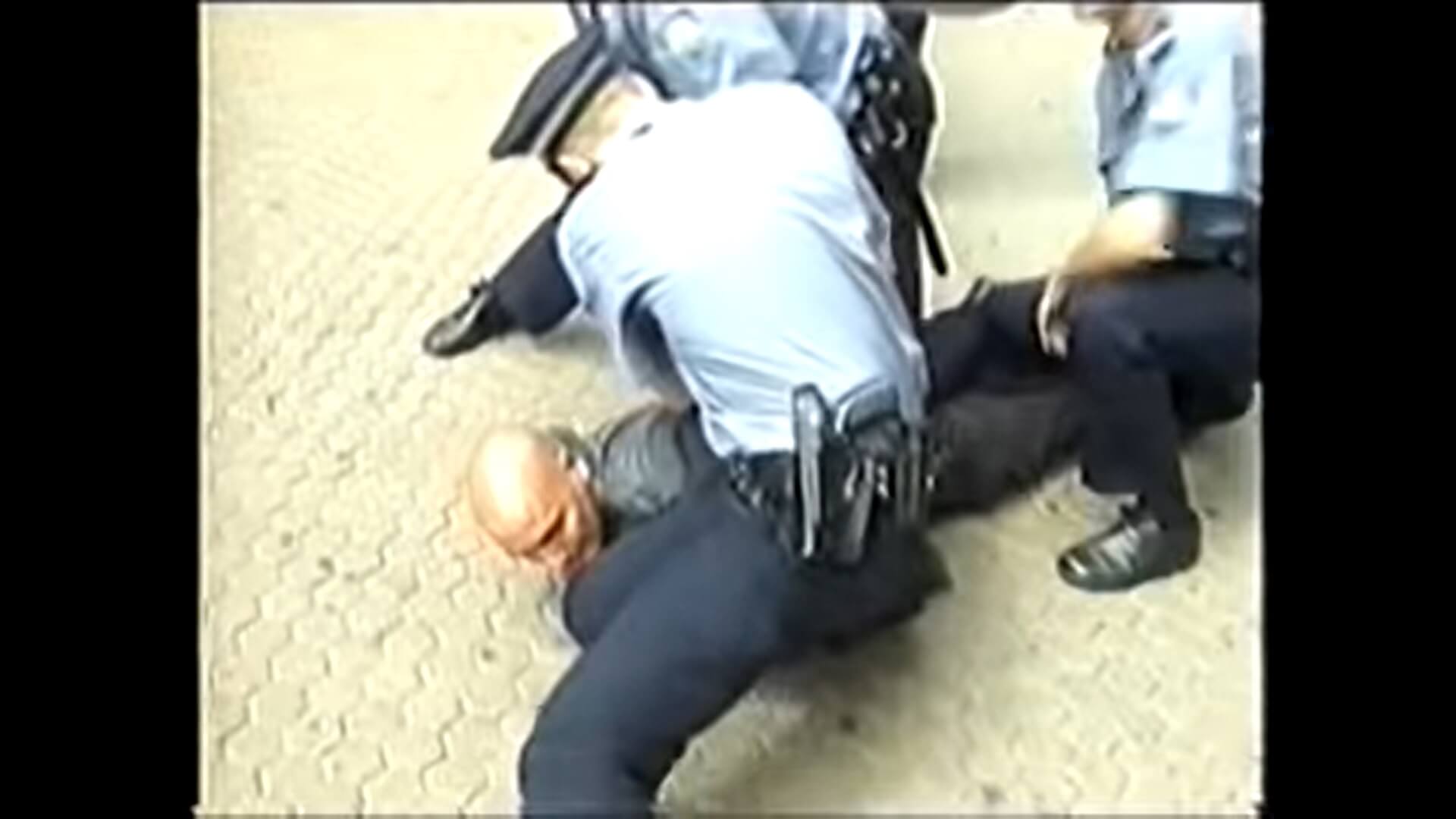
Police arresting violent skinhead at the first Zagreb Pride in 2002, screenshot / Zagreb pride
But, at least for Zagreb, the situation got better and more open. Today, pride is the forthcoming celebration of love and freedom, and entire families can be seen to join the picnic at Ribnjak park to teach their children tolerance and that people are not sick or different from others because of their sexual preference. Other larger cities in Croatia, such as Split, slowly but surely, do follow that path too, and Rijeka, the pinnacle of liberal Croatia, is also a very gay-friendly city.
Of course, a political counterstrike is expected and quite strong. The first most notable one was the 2013 referendum, where it was voted that the Croatian constitution declares marriage as a „community between a man and woman“. The goal was to deny LGBTQ couples the same rights as enjoyed by straight people.
However, the bill on life partnership outplayed that attempt.
In the meantime, LGBTQ couples can also adopt children in Croatia, as Constitutional Court concluded that gay couples fostering children is not against the Croatian Constitution.
That decision and along with the general openness of Croatia towards LGBTQ was followed by a controversial carnival in Imotski where an effigy of a gay couple was burned. President Zoran Milanović demanded an apology from the organizers, and SDP's MP Arsen Bauk filed charges against the organizers.
Counting pluses and minuses, the report on Croatia being the 39th best country for LGBTQ visitors still seems to uphold. No changes for the better, but at least Croatia is still in the top third for this category of tourists.
Haters strike back
2020 and 2021 sadly saw the uprise of violence towards LGBTQ in the Croatian capital. Apart from the occasional tearing down or burning of the rainbow flag, Croatia was shocked with an attempt of burning a man in Maksimir Forest Park as well, with his sexual preference being the sole motive for the attack.
On the other side, this year's pride felt to start stronger than ever. The newly elected mayor Tomislav Tomašević joined the parade, along with stating that Zagreb is a city that is open to everyone. This year arranged a bit differently to adhere to corona measures; around 2500 participated in the event.
„Twenty of our prides made our city and our republic a better, more democratic, and joyous place for the life of all citizens“, was the main message of the 20th edition of Zagreb Pride.
As reported by Index.hr, the Zagreb Pride association representatives stated that the Croatian LGBTIQ community „became a powerful, responsible and self-aware part of the country, but that the fight isn't over“.
„Our constitution and our laws still do not include in a complete and fair way. Our streets and squares are still not free of hate. We didn't forget nor we will forget victims of homophobic and fascist rampage in this year and all previous years“, stated Zagreb Pride.
Sadly, while Pride itself went without issues, participants of the pride who walked the streets of Zagreb after pride with rainbow flags faced a series of physical attacks on several locations in Zagreb.
A week ahead of Pride, conservative MOST Party parliament member Nikola Grmoja complained that commercials displayed during EURO 2020 commercials were LGBTQ propaganda and that kids need to be protected from it and announced that he might include it in his anti-pedophile package. Grmoja's statement caused strong disagreements among the Croatian public, with several people (including celebrities) teasing him that if he wants to start battling pedophilia, he should start from church (as Grmoja is quite clerical). Božo Petrov, president of the MOST party, added more fuel to the fire when he supported Grmoja, stating that „minorities can't dictate what my children can learn in school“. He added that minorities need to be aware that they are minorities and that „we tolerate that," sparking more enrage from the public, with many comparing MOST to the controversial Hungarian Prime Minister Viktor Orban.
Zagreb Pride linked the post-Pride physical attacks with Petrov and Grmoja's public statements, and Petrov and Grmoja announced they would sue Zagreb Pride for slender.
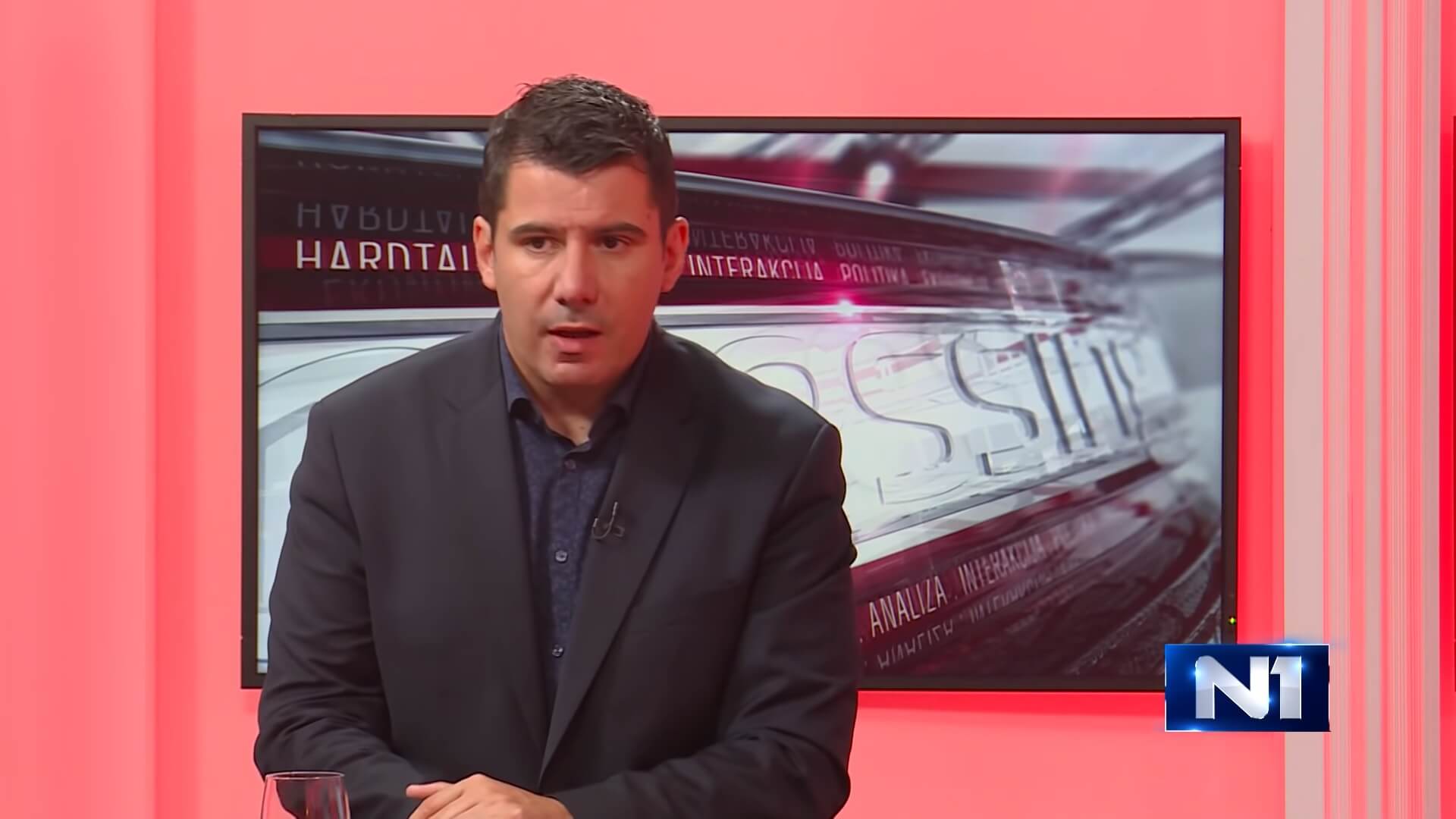
Nikola Grmoja, screenshot N1
The Law: "Gay is OK". Popular opinion: "Do it in your homes, not on the streets".
In this political escalation, what does the average Croatian think? Looking at the comments on social networks, it seems the majority of Croatians don't mind gays being gays and living how they like (even if they are not always happy with legal rights the LGBTQ community received). But, one sentiment in that „tolerance“ is particularly worrying.
„Live in your house however you want it. You don't have to wave around, like its a best thing ever“, said one of the online comments on Index.hr beneath the news on Petrov and Grmoja.
So it seems the public does not understand why Pride is important. First of all, as evident, the political climate is such that the battle for equality truly isn't over in Croatia, and Pride is the best way for the community to express what issues LGBTQ still face in Croatia. Additionally, pride month is also educational and supportive, and public presence show to other people who feel the same that they are not alone, as they might feel lonely and unable to find people who feel the same in everyday life.
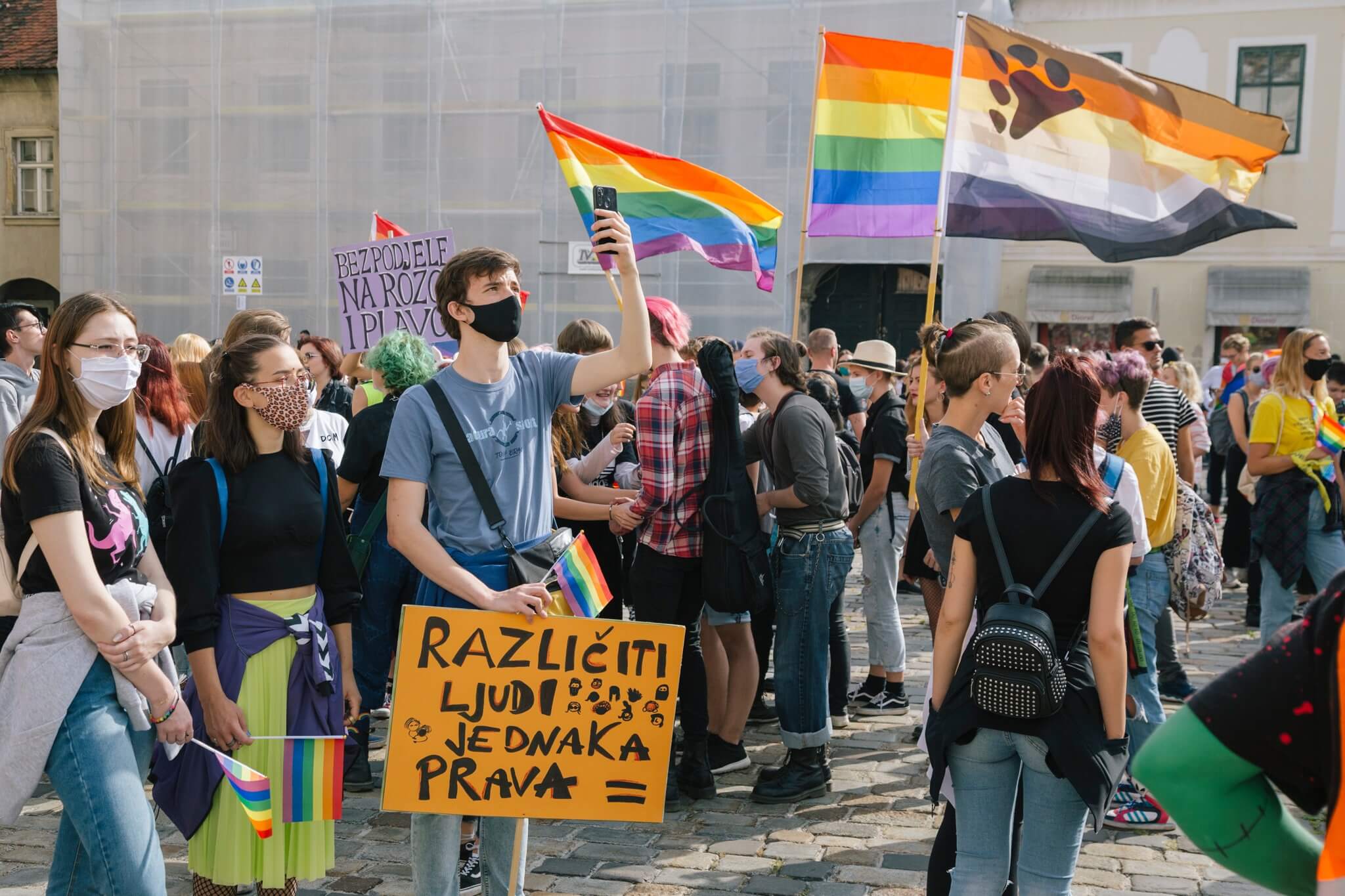
© Zagreb Pride
But, even if the law and constitution give the same rights and solves the problem of intolerance of LGBTQ people completely, does that mean that Pride should then be canceled? Well, Croatia won its independence and the war in the nineties. Does that mean we should stop commemorating the Homeland War? Or is it nice to honor and celebrate the victory and triumph over all obstacles Croatia had to face in its independence? Pride is a cultural, commemorative event honoring those who were or still are victims and oppressed for their sexual preference, either in Croatia or in the world. Croatia is a democratic country. Every group, national, ethnical, racial, religious, etc. should have the right to gather and honor its heroes. The right to gather and honor its tragedies and their dates and connect with other people who feel the same. If political elites are so concerned with keeping Croatians in Croatia, then they can't afford to discriminate or attack part of Croatian society solely based on their sexual preference. A preference that, unlike being violent or intolerable, can't be chosen.
Learn more about LGBT rights in Croatia and what LGBT tourists should know on our TC page.
For more about LGBT in Croatia, follow TCN's dedicated page.
Opposition Accuse Government of Trying to Buy Votes From Pensioners and Young People
ZAGREB, 15 April, 2021 - Parliamentary opposition parties on Thursday criticised the government's plan to pay a COVID supplement to pensioners and a tax refund to young people in the run-up to local elections as vote buying.
Arsen Bauk of the Social Democratic Party (SDP) told reporters in the parliament building that the government "has obviously sorted its priorities to ensure the best possible election result" for the ruling Croatian Democratic Union (HDZ).
"We support a COVID supplement for pensioners, even before elections. I think the Croatian democracy is mature enough and that this will not result in voters voting en masse for the HDZ," Bauk said.
Homeland Movement MP Stjepo Bartulica said that Prime Minister Plenković often expressed his disdain for populists. "I see a great dose of populism in the timing of this measure," he said.
"We are all equal in Croatia, but obviously some groups are more equal than others, especially with elections coming up. In principle, I am not against helping the pensioners, but the way in which the government runs its policies actually increases cynicism in Croatia," Bartulica said.
Bridge's Božo Petrov noted that the government had promised several years ago that the living standards and monthly incomes of pensioners would rise considerably, suggesting that the measures proposed by the government should remain permanent.
Bojan Glavašević of the Green-Left Bloc said that "the pensioners and young people, as vulnerable groups, need systematic rather occasional assistance."
Unlike the opposition, the HDZ's Ivan Ćelić disagreed that this was an attempt at vote buying for local elections. "Let me remind you that a month before elections the (SDP) government of Zoran Milanović gave away electricity vouchers of HRK 200, which can be seen in the same way as the COVID supplement," he said.
(€1 = HRK 7.5)
For more about politics in Croatia, follow TCN's dedicated page.
Bozo Petrov Re-elected Leader of Bridge
ZAGREB, Dec 21, 2020 - The opposition Bridge party held an intra-party election on Sunday by electronic vote and re-elected Bozo Petrov as the leader of the party.
The party said on its Facebook profile that Petrov won 89.96% of the vote defeating the rival Bruno Petrusic.
Bridge elected 15 Main Committee members, four Presidency members, five Supervisory Board members, and a youth secretary.
The Presidency decided to hold the election on December 7.
Croatians Twice as Likely to Die From Treatable Diseases Compared to EU
Croatian Parliament MPs Božo Petrov and Ines Strenja emphasized that, despite the dismissal of Health Minister Milan Kujundžic, problems with Croatian health system have not gone away. They also pointed out that Croatians are twice as likely to die of treatable diseases as citizens in more developed European countries.
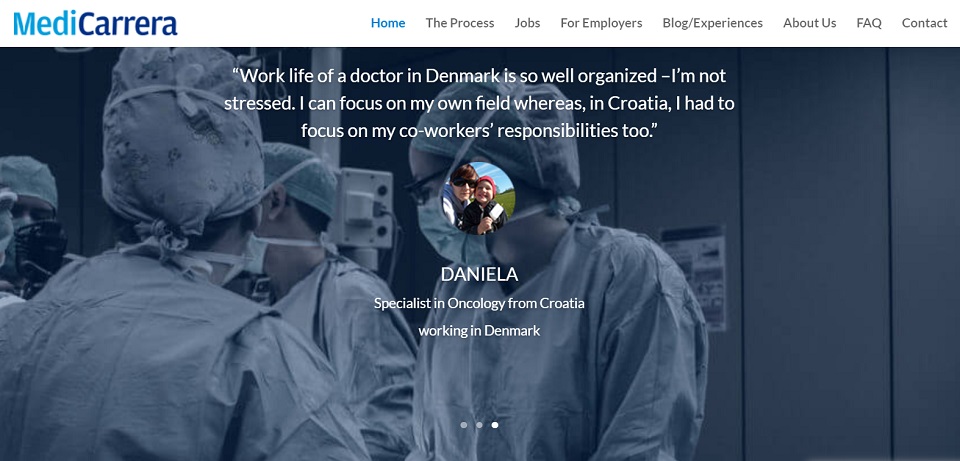
MediCarrera | Screenshot
Medical Staff Leaving Croatia: Remainers Working Unpaid Overtime
"After three and a half years of inaction, it is time to start treating chronic illnesses in the Croatian healthcare system. The system is in debt, irrationally organized, filled with red tape and waiting lists while doctors and other medical staff are leaving Croatia (for opportunities abroad). Those who remain, like nurses, are at a disadvantage and are being forced to work unpaid overtime hours,” Petrov pointed out.
Scandinavia Offers Croatians Free Relocation, Language Training, Child Care
Indeed, more financially prosperous EU countries have set up one-stop recruiting sites to lure medical professionals to their countries to the further detriment of Croatian citizens and residents. MediCarrera, a website serving the medical career recruitment needs of Denmark, Sweden and Norway; offers job placement, language training for hires and their families, accommodations and relocation costs; all of which are financed by employers in their respective countries.
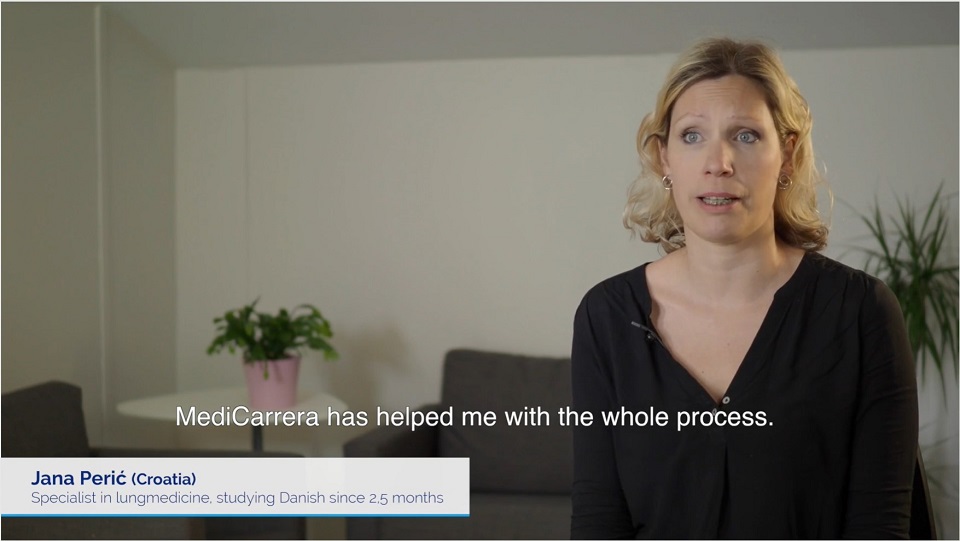
MediCarrera | Screenshot
Several Swedish media outlets have recently criticized Croatia for its demographic losses and emigration.
Despite these external and internal challenges, Petrov insisted to members of the Croatian government that Most would not let them continue policies of inaction which had defined the former health minister's term according to Index on February 14, 2020.
Croatians Have Highest Mortality Rate for Treatable Diseases
Strenja pointed out that Croatian citizens continue to occupy high, and sometimes the highest, mortality rates among all EU citizens for avoidable and treatable diseases.
The reason, she said, lies in the lack of effective preventive medicine, timely diagnosis and the timely beginning of treatment.
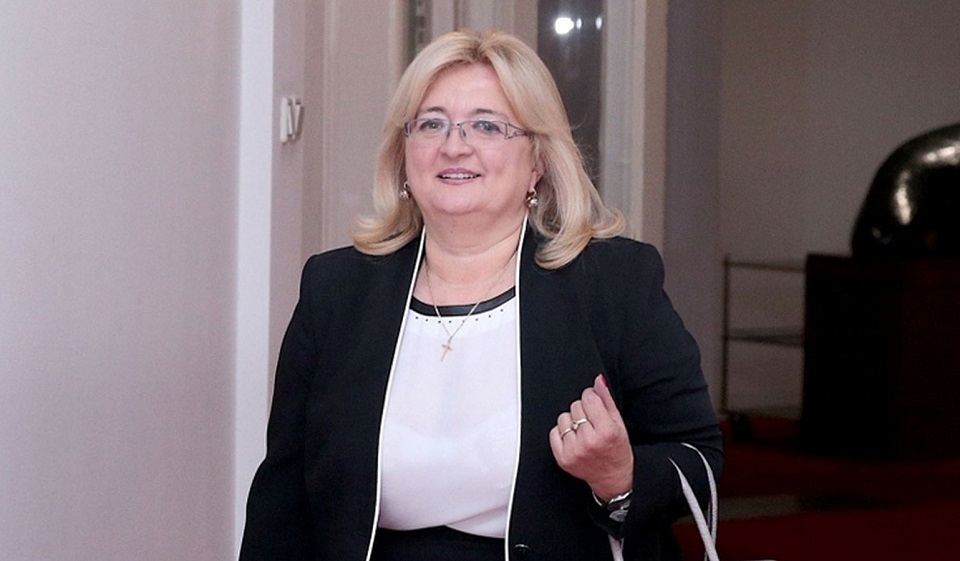
Ines Strenja | Most
Strenja: Investing in Preventative Medicine Yields Fourfold Savings
"Again, unrefined protocol, procedures, measures and responsibilities will continue to miss desired expectations, which is ultimately evident in the overall health data. We emphasize that the investment in preventive medicine is the best bet and yields fourfold savings in treatment," Strenje explained.
She added that ex-Minister Kujundžic's files contain proposals for national strategies that would lower the death rate in Croatia from preventable diseases which is currently 293 per 100 thousand inhabitants compared to 140 per 100 thousand in the EU. The mortality from treatable diseases in our country is 140 per 100 thousand compared to only 90 out of 100 thousand in the EU.
“Therefore, I am calling on the new Health Minister, Vili Beroš, to discharge them and move on to combat chronic non-communicable diseases and conditions in Croatia,” Strenja urged.
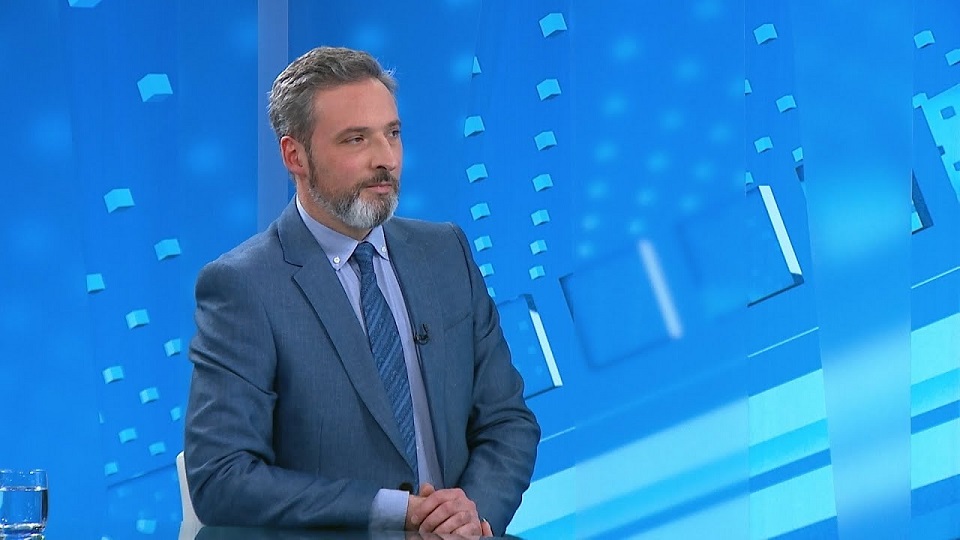
Ivan Bekavac | N1
Bekavac: Action Plan Another 'Wish List'
Ivan Bekavac, Advisor for Most’s Health Council, pointed out that two key documents should guide the future of Croatians: The Draft Proposal for the Prevention and Control of Chronic Non-Communicable Diseases 2020-2026 and the Draft National Cancer Plan 2020-2030.
"The Action Plan for the Prevention and Control off Chronic Noncommunicable Diseases 2020-2026 does not sufficiently emphasize the responsibility of the Croatian government for the health of the population, because it must place much greater emphasis on the coordination of all departments in promoting and preserving health. It is just a wish list of suggestions, and is almost identical to the previous action plan, and again lacks elements of supervision, monitoring, performance evaluation and research," he explained.
He also considers it a disadvantage that the Draft National Cancer Plan 2020-2030 omitted family medicine doctors who are most familiar with their patients, their habits and family heritage, and emphasized that they should be key stakeholders in encouraging and mobilizing patients for preventive examinations.
Follow our Politics page to keep updated on the health care crisis in Croatia.
Croatian Vice Presidents Receive Taxpayer Funded Audi A6 Luxury Cars
Croatian taxpayers are financing new expensive Audis for three parliament vice presidents. The monthly payment for each car equals the average Croatian citizen’s take-home pay. The brand-new cars were delivered in December 2019, came with 60-month contracts and a monthly installment of 5541 HRK (744 EUR) per car.
Three of Five Vice Presidents Accepted Audi A6
Three of the five deputies in Croatian Parliament accepted and are driving brand new Audi A6 cars, the Croatian Parliament press office confirmed to Hina. The new cars were offered to four vice presidents, as Božo Petrov (Most) had refused an offer to use an official car earlier.
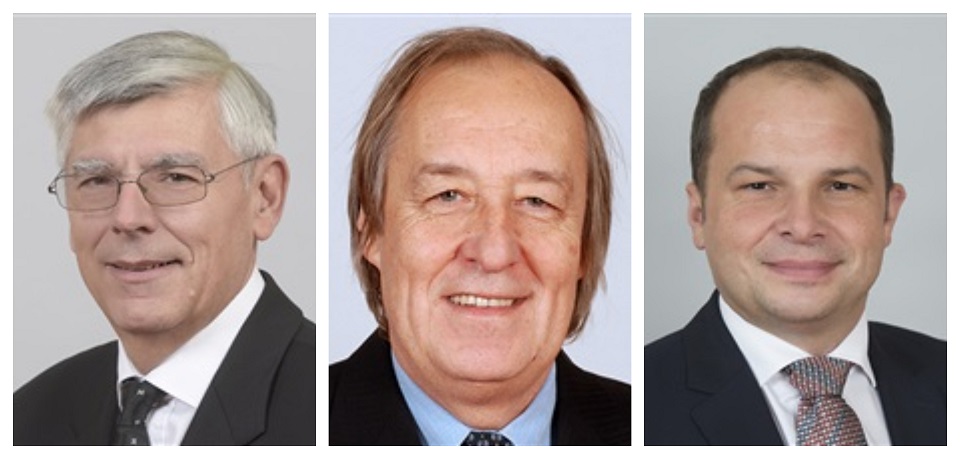
Željko Reiner (HDZ), Furio Radin (NZ) and Siniša Hajdaš-Dončić (SDP) accepted state-funded Audi 6 luxury cars.
Three Vice Presidents accepted the luxury cars: Željko Reiner (HDZ), Furio Radin (NZ) and Siniša Hajdaš-Dončić (SDP). However not Milijan Brkić (HDZ) kept a previously financed Škoda Superb. Unofficially, Brkić will continue to use the official Škoda Superb, rejecting the new official Audi A6, a model purchased for the vice-presidents less than a year before the end of their terms, according to Novi List on January 15, 2020.
Petrov Does Not Want to Spend State Funds on Most
"I do not want to spend the financial resources of the state, or of all taxpayers, for Most’s party needs," explained Petrov, the only vice-president of Parliament who is also his party's president, in his official car waiver. The official car, he says, was returned a year ago, in January 2019, at the beginning of the European Parliament election campaigns, and he maintained this position during the presidential election campaign.
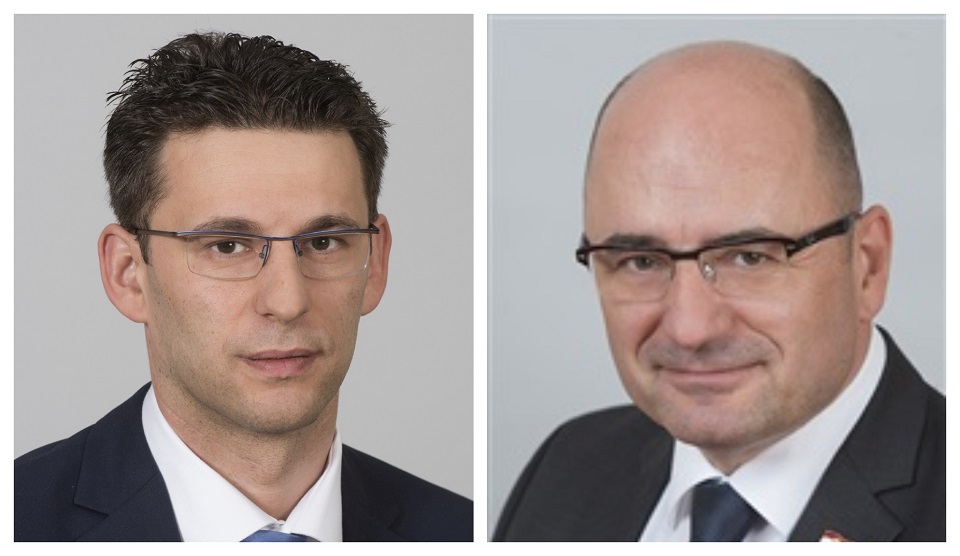
Božo Petrov (Most) refused Audi A6 and Milijan Brkić (HDZ) will keep state-financed Škoda Superb.
"It makes no sense for me to go around the country in a car which belongs to the state, and use it to promote the objectives of Most," Petrov said explicitly.
Parliament has not revealed the cost of the cars. However, they confirmed that the new cars were delivered in December 2019 after 60-month contracts were signed with a monthly installment of 5541 HRK (744 EUR) for each car. Multiplying the monthly payment by 60 months totals 332,460 HRK (44,654 EUR) for each car. Multiplying that total by three comes to a 997,380 HRK (133,961 EUR) bill for Croatian taxpayers to provide Reiner, Radin and Hajdaš-Dončić with luxury cars.
Vice Presidents Not Asked Before UZOP Audi A6 Procurement
The parliament deputies were not consulted before the new cars were purchased according to the press office statement. And parliament itself does procure them, nor does it manage the fleet for its own needs or those of parliamentary officials.
"These affairs are the responsibility of the Ureda za opće poslove Hrvatskog sabora i Vlade (Office for General Affairs of the Croatian Parliament) and the Government, which also manages the transportation for parliament officials, the government and all its offices, as well as the transportation of foreign delegations and protocol programs," the parliamentary press office explained regarding UZOP duties.
From 2014 to March 2019, UZOP had a “certain number of vehicles” at their disposal which were leased to serve the needs of users and the beneficiaries. These vehicle procurements are based on a public procedure and conducted by the Središnji državni ured za javnu nabavu (Central State Office for Public Procurement) and the framework agreement effective 2013.
In 2018, one year prior to the expiration of this contract, UZOP reported the need to procure new cars through financial and operational leasing to the Central State Office. They specified the car classes prescribed by the government and parliamentary decision on the conditions of use for official cars, mobile phones, etc. and guidelines for fleet management.
According to the decision, the vice presidents of the parliament have a right to use an official upper middle-class passenger category auto, according to the parliament statement regarding the length and details of the car procurement process.
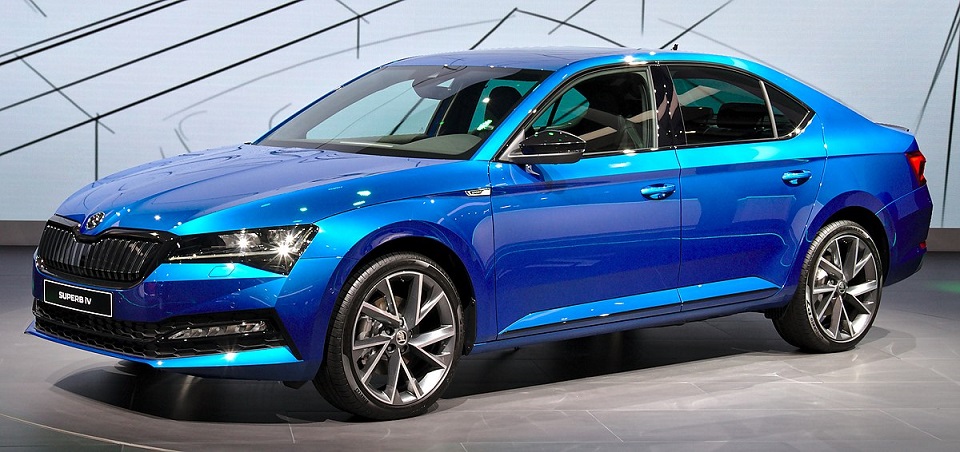
Škoda Superb with a 202,343 HRK (27,178 EUR) price tag.
UZOP Purchased 18 Škoda Superb Autos for Croatian Parliament
Since the public procurement procedures for new vehicles were not completed by end of March 2019, and the older purchased autos under previous contracts had to be paid off, several cars were rented for the interim. Those rentals ended on July 15, 2019 when 18 middle-class Škoda Superb cars were purchased with financial leases.
The parliament press office stated that the complete procedure for the procurement of cars, 27 different classes in this case, was according to regulations, to serve the needs all institutions under the jurisdiction of the UZOP and the Central State Office, which provided the technical specifications for the required car classes (engine power, accessories, etc.)
The Central State Office reviews and evaluates the tenders, makes the selection, and then concludes the framework agreement. Neither parliament, UZOP, nor future users of official vehicles influence this process, the press office emphasizes.
New Audi 6 Cars Shipped in December 2019
The procedure for procuring the Audi A6 cars was published in the Narodne novine (Official Gazette) on September 18, 2018, the car selection decision was made on May 2, 2019. The vehicles were delivered in December 2019.
Follow our Politics page to keep updated on the brands and models of taxpayer-funded cars that top Croatian government officials are driving.
Ivica Todorić: I've Not Been Destroyed, I'm Happier Than Ever
As tportal writes on the 24th of March, 2019, in just a few day's time, it will have been a full two years since the adoption of Lex Agrokor. Four and a half months since his extradition to Croatia after a year of fighting his corner in London, there are still no actual indictments against Ivica Todorić and his managers in the former Agrokor system. After having announced his desire to enter into politics, followed by a brief yet rather deafening silence, N1's guest was no less than the former owner of Agrokor, Ivica Todorić himself.
Asked to comment on the notion that he symbolised absolute power two years ago, built and owned the most successful company in the Balkans, and today he's a destroyed businessman awaiting his indictment, the ever smiling Ivica Todorić said he was in exactly the same form and acts very much in the same way as he did two, three, or four years ago.
''I'm doing more than I've been doing for the past forty years and I'm going to be honest, maybe I'm even happier today, a happier man than I used to be,'' a grinning Ivica Todorić told N1, saying that he was fighting for another thing now, and that is a fight against Croatia's corrupt system. He said that he was far from destroyed, quite the contrary.
For the last two years, the state has been preparing a trial against you, claiming that you committed crimes within Agrokor...
''I don't bother having anything to do with that, some accusations against me, what they're saying, and what they've tried to imply, it will be one serious legal document of this shameful Croatian state ... After thirty years, I left my company. In the last thirty years, everything remained within the company, all my mails, SMS's, accounts, all my transactions, all my contracts, everything remained within the company! Why not show us just one receipt?! What they did in Agrokor in a year, what crimes they were committing...'' questions Agrokor's former top dog.
Although DORH argues that the value of the company fell due to debts, Ivica Todorić claims that he has full evidence of the value of the company.
''What they made out of Agrokor today, I can't get 2.5 billion for the whole group. What destruction they've caused. When you talk about DORH and the process against me... Unbelievable. They claim I took some money. They know where the money went, where the accounts are. I took about 470 million euros in personal debt and gave it all to Agrokor. Agrokor was indebted to me, not me to Agrokor! And sure, it's like I've taken something...'' said Agrokor's ex boss.
He also said that Božo Petrov lured him to a meeting and he arrived like something out of the mafia in the night. "That was a weird meeting, I did't understand anything," Ivica Todorić said.
When asked if he was looking for money from the Croatian Government for Agrokor, he said: ''What do you mean? What money? Agrokor wasn't in trouble. It was only important for them that I came to be able to say that I came, so they could say that I was looking for something,''
He also said that none of the suppliers who worked with Agrokor had suffered any damage, but that was why he acted in the manner he did towards CNB/HNB's governer Boris Vujčić, about whom he had few nice words to say.
"He absolutely ruined me, he'd talked to some vulturous funds, gave them preferential information. You'll see what will still be done, what will be found out. That Vujčić has dragged Croatia to the bottom of the bottom. He put me, Agrokor, a thousand of our suppliers in position in which we had to pay more interest,'' said Ivica Todorić.
He also commented on the possible return of Antonio Alvarez III (Yes, that's really his name), who was among the very first to appear on Agrokor's then crumbling stage just after the passing of Lex Agrokor, allowing the government to intervene in the enfeebled company's affairs.
"This about them calling Mr. Alvarez and what they're doing, you can see that they're just lost, they don't know what they're doing, they don't know where they're going," he remarked.
Ivica Todorić believes that the Fortenova Group, which will soon be the ''new'' Agrokor, won't actually exist for years, nor will it be anything compared with Agrokor's entire business. He also believes that DORH is working to protect Andrej Plenković.
Make sure to follow our dedicated lifestyle, business and politics pages for more info on Ivica Todorić's entry onto the Croatian political scene and much more.
Vlaho Orepić Discusses Issue of Fake Residences and Voting System
Independent parliamentarian Vlaho Orepić discussed various issues surrounding the Croatian political and social structure, claiming that ''the failure to properly deal with fake (fictitious) residences by the authorities is politically motivated and purposely left unresolved with the aim of influencing the outcomes of the upcoming elections,''
The fact that there is no real intention of the current authorities to remove fake residences from the electoral register and bring some order [to that situation] and accordingly, Croatia conducts a policy of banalisation when it comes to the conditions for obtaining Croatian citizenship were grounds for a press conference held by independent MP Vlaho Orepić.
On Tuesday, February the 5th, 2019, on the premises of the Croatian Parliament, Vlaho Orepić held a press conference on which he once again pointed out to the media and the public the problem of fake residence registration.

The fact that this issue remains unresolved means people who have their permanent residence in the Republic of Croatia are denied the right to elect their own authorities, and Croatian citizens living outside the homeland (whose voting rights are indisputable and come directly from what is written in the Constitution of the Republic of Croatia (Ustav Republike Hrvatske) are also deceived in this way.
The conclusion which has now been arrived to, given that a response from the relevant minister wasn't given even after the issue was brought up in parliament, is that there is simply no sincere and real intention of the current government to even try to tackle an extremely important issue so that honest elections can be carried out in the future. Orepić has therefore also called upon political and social structures to take a stance and engage with the aim of protecting legality of upcoming elections and democratic processes in the Republic of Croatia.
"What worries me, and what has inspired a series of both formal and informal reactions from me, even this press conference, is the fact that false (fictitious) residences are politically motivated and protected with the aim of influencing the outcomes of the electoral process(es) in the Republic of Croatia. My goal is to put an end to fake residence [registration] and the type of politics which permits that same cheating in the elections. My goal is fair elections,'' stated Orepić.
According to new statistics, Croatia has fewer than four million inhabitants (approximately 3.750 million), according to official data we can count almost 4,175,000 people with health insurance and as many as 3,746,286 voters. The fact that the number of voters isn't actually correct has been indicated by the data of the Central Bureau of Statistics (CBS), published in July 2017, which states that just children under the age of fourteen alone which are registered amount to 600,000. It's totally clear that Croatia has no accurate and publicly available list of citizens and voters, nor does it have the political will to have this problem solved.
From the mentioned numerical indicators, as well as from the legal definition of residence, which reads as - residence is the place and address in the Republic of Croatia where the person permanently resides in order to exercise his/her rights and obligations related to living interests such as family, professional, economic, social, cultural and social other interests - it's clear that a lot of people who don't meet these conditions have been entered into the electoral register.
They are listed [on the electoral register] on the basis of their false registrations of residence in the Republic of Croatia and thus, in addition to voting and other rights, they enjoy economic ones which come with residing in the Republic of Croatia.

That this is politically motivated has also been indicated by the fact that the second day after Vlaho Orepić's dismissal as Minister of the Interior, the disclosure and deletion procedure of false residence registrations in the Republic of Croatia (mainly regarding citizens from neighbouring Serbia and Bosnia and Herzegovina) was suspended. Activities related to the abolition of fake residences are a legal obligation of the chief of police administrations, but in spite of that fact, all of those who were engaged in carrying out this work were prevented from continuing with it.
While Vlaho Orepić was the Minister of the Interior, in just two and a half months, about 45,000 fake residence registrations were removed, and over the next four months that number rose to 75,000. The estimates are that at the present moment, there are at least 150,000 fictitious residence registrations in the Republic of Croatia, which brings a whole range of election process outcomes as well as the legality of the authorities at all levels into question.
"I hope all political, judicial and other social structures will realise the importance of this issue. From the government, the security services and the justice system, I expect an urgent reaction, just as was done with the recent attempt to try to discredit the Minister of Agriculture (Tomislav Tolušić). I expect from the umbrella of war veteran associations to stand up for the legality of the election process in the Republic of Croatia, especially with the engagement of Mr. Josip Đakić as a parliamentary representative and as a war veteran.
I expect the support of the President of the Croatian Parliament, Mr. Gordan Jandroković, and especially the two vice-presidents Mr. Milijan Brkić and Mr. Božo Petrov because they know very well what I'm talking about and what I'm fighting for. I also expect the support of President Kolinda Grabar-Kitarović to whom this issue must be in focus because it's in the interest of citizens, and all the citizens of the Republic of Croatia, and without whom we cannot even begin to talk about the rule of law as the basis for the survival of every single legal state,'' concluded Vlaho Orepić, MP.
Make sure to follow our dedicated politics page for much more.
MOST Looking Forward to Presidential Elections
ZAGREB, January 5, 2019 - The president of the opposition MOST party, Božo Petrov, told Hina in an interview it would be interesting to see former prime minister and ex-SDP leader Zoran Milanović as a presidential candidate.
"It would be interesting to see the political arena with Zoran Milanović in the role of a presidential candidate. The only question is whether or not he will take that step because it is not the same to be a candidate of a political party and to run as an independent candidate. I believe it could be an interesting race," Petrov said, adding that MOST would not support his candidacy or the candidacy of the incumbent President Kolinda Grabar-Kitarović.
Asked about his party's lower ratings, Petrov the best day for polls was the election day.
Commenting on claims that his party had taken a sharp turn to the right, Petrov said the easiest thing to do was to label people. "I believe that many people could not wait to label us in order to remove us from the political sphere. From the very beginning, MOST has been a thorn in the side of those who were governing Croatia," Petrov said.
Asked to comment on the fact that he has to answer questions before the Conflict of Interest Commission, after the Živi Zid party raised the issue of his involvement in the Agrokor case, Petrov said he had already been in front of the Commission twice, as a witness, and that he would only tell the truth.
Asked to comment on a possible cooperation between his party and the Živi Zid Party, Petrov said MOST would support all constructive proposals that were in the interest of Croatian citizens. "Unfortunately, such proposals are very rare," he added.
More news on the activities of MOST can be found in our Politics section.


